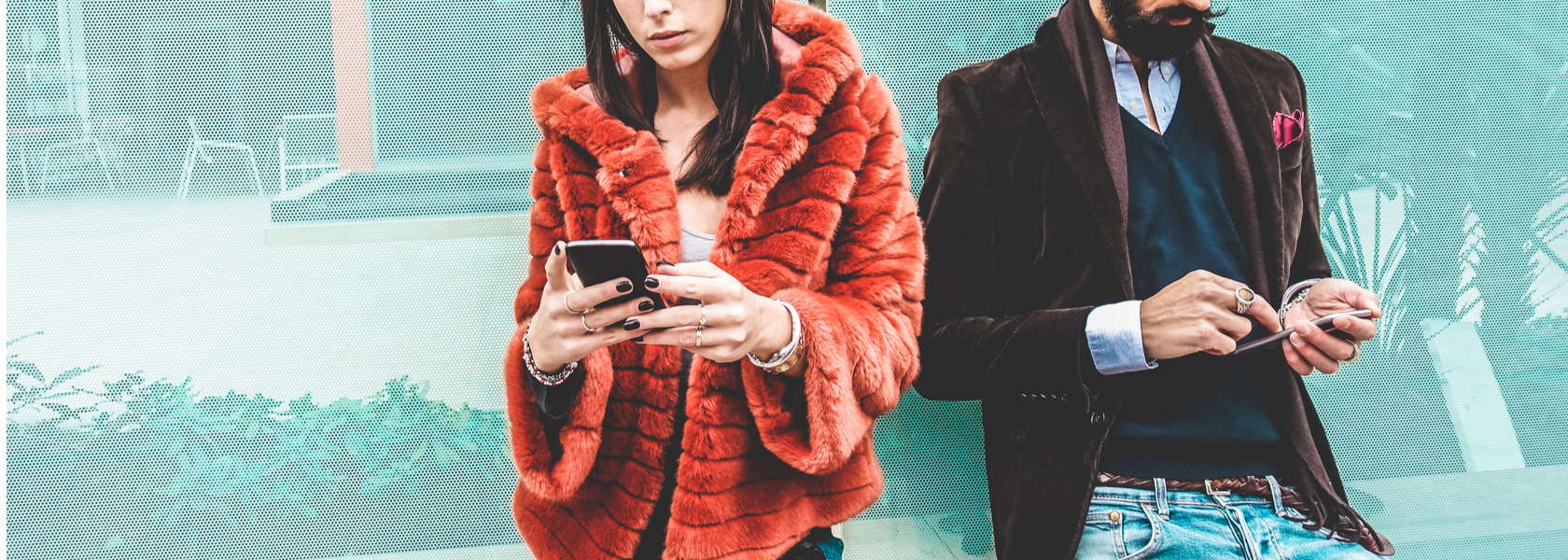Social media platforms like Facebook, Twitter, Instagram and others have given us a new way of communicating with each other. Likes, shares and hearts have been the new norm, and swiping right or left has been our new activity. As great as social media is for communication, connecting people, getting old friends or family back in contact, the coin always has two sides.
As our species evolves ever forward, everything now moves forward by the speed at which you can type or the speed of your internet. We are so connected on our phones and hyper connected online, it is already the first thing most of us sees once we wake up in the morning, and the last thing we see or talk on when we get to bed at night. In between these times, we use these platforms to communicate to people, for work, for personal reasons, to share funny jokes, to share our day with our friends and loved ones. When once in our history we communicated through letters and analog phones, which required us to be deliberate about the messages we sent out and wrote or said, now there is always the UNDO or DELETE button, or CTRL X.
So what does this do for our relationships? In social media, there are very few instances where you can see the nuances of language, verbal or through the body. There are no real facial expressions online, only emojis. So our ability to ‘read’ people does not get practiced and there is more room for miscommunication. “It is almost impossible to create or enhance relationships when social media is, in the first place, taking our time and attention away from who is in front of us,” says Leslie Shore, a communications expert and an author.[1]

Why is this important?
For those who are currently in a romantic relationship, in the beginning, in the middle or at the end, there are a couple of tips that have been in the Psychology Today[2] website:
1. Unfollow and/or remove your exes from social media.
It is nearly impossible to get over a person if your social media feed is constantly bombarded by pictures of him/her. If your goal is to remain friends with your ex, an honest conversation with him/her noting that you need your distance while the breakup is still fresh may be worthwhile. You may choose to unfollow him/her (if an option on the platform), rather than completely removing your former flame.
Muise et al. (2009) found in their study of 308 undergraduates that “Facebook may expose an individual to potentially jealousy-provoking information about their partner, which creates a feedback loop whereby heightened jealousy leads to increased surveillance of a partner’s Facebook page. Persistent surveillance results in further exposure to jealousy-provoking information” (p. 443). In order to break this cycle, try to remove yourself from social media to whatever extent possible.
2. Be aware of your online presence.
Yes, breakups can be hard, and yes, they can be very painful. However, it is important not to air any dirty laundry over the internet. What you put out there has a way of getting around and remaining public (even if swiftly deleted). If you are having a tough time, it is important to seek support from family, friends, and/or a professional. Do not solicit advice or vent about past problems to your social media communities. This may come back to haunt you. In addition, oversharing may actually alienate your other online friends.
Sharing too much has been shown to decrease the quality of real-life relationships. A study with 508 Facebook users found that sharing too many selfies can actually lead to a decrease in intimacy in relationships (Houghton, Joinson, Caldwell, & Marder, 2013). The authors suggest that a certain level of censorship is necessary so as not to alienate your companions by your online behavior.
3. Carry out your new relationship(s) IRL and not through social media.
Focus less on creating the perfect social media story and enjoy the time you spend with your partner and friends in real time in the real world. If everything is distilled through a website, you aren’t making the most of the time you spend together.
While social media can be a great way to connect with those we haven’t seen in a while and keep in contact with family, co-workers, and friends, it can have some negative side effects, especially when it comes to our romantic lives. Be conscious of how you engage with social media and use it sparingly. Avoid focusing too much on the past and live your life with your current partner in a meaningful way, and not for the purpose of a “perfect” post.” Be present in your relationships, whether or not it is a romantic relationship, take your time to solidify your relationships with those who matter most.
Sources:
- Savoie, Gabrielle, “A Relationship Expert Explains How Social Media Affects Your Love Life”,Updated: January 27, 2020 https://www.mydomaine.com/how-social-media-affects-relationships
- Cohen, Marisa T. Ph.D, CPLC, “Social Media and Relationships, A few important rules.” Posted Dec 04, 2018, https://www.psychologytoday.com/us/blog/finding-love-the-scientific-take/201812/social-media-and-relationships
- Silva, Clarissa, “Social Media’s Impact On Relationships And Self-Esteem, Your Happiness Hypothesis Study Findings”, https://thriveglobal.com/stories/social-media-s-impact-on-self-esteem/
- Harman, Rosie,“How Social Media Affects Relationships Positively and Negatively” May 23, 2019, https://thriveglobal.com/stories/how-social-media-affects-relationships-positively-and-negatively/
- Maslow, Jacob, “The negative effects of social media on relationships”, November 18, 2019, https://socialmediaexplorer.com/social-media-research-2/the-negative-effects-of-social-media-on-relationships/


